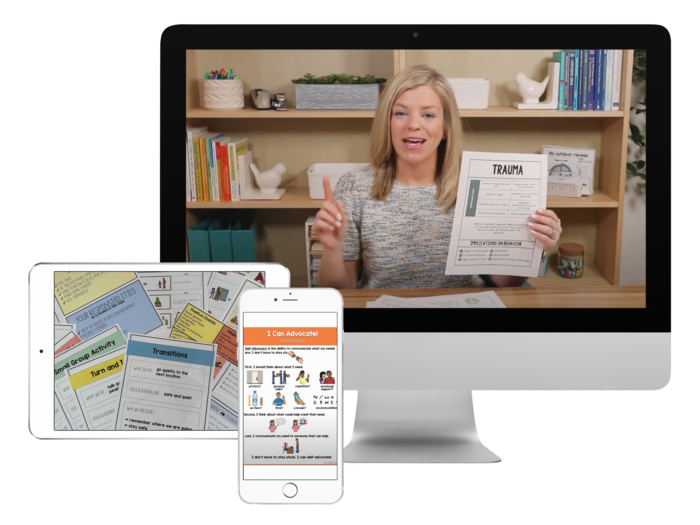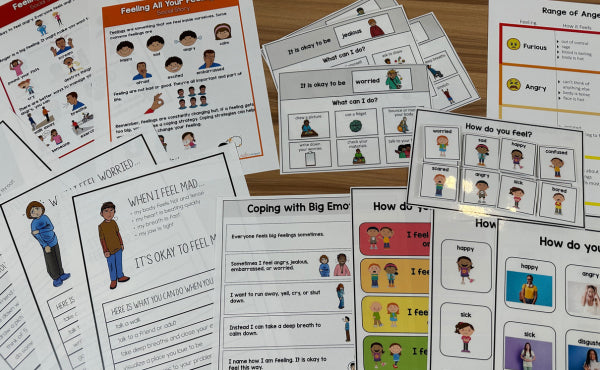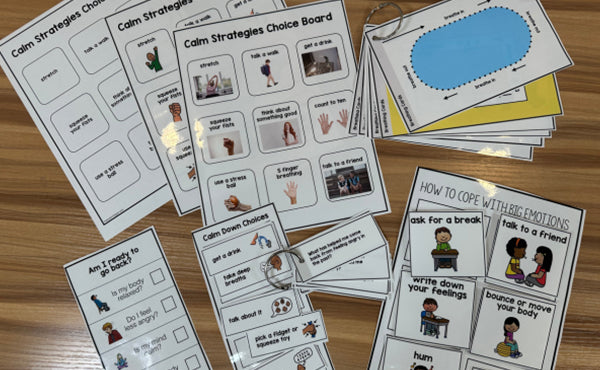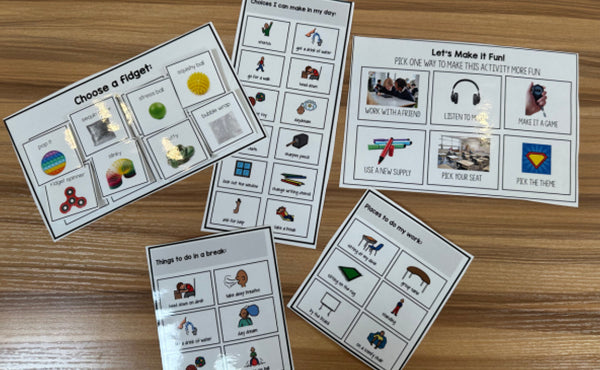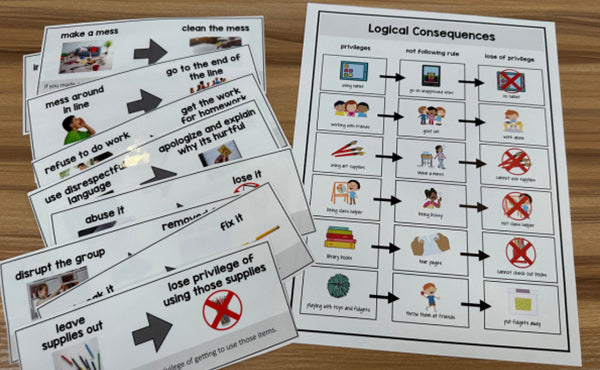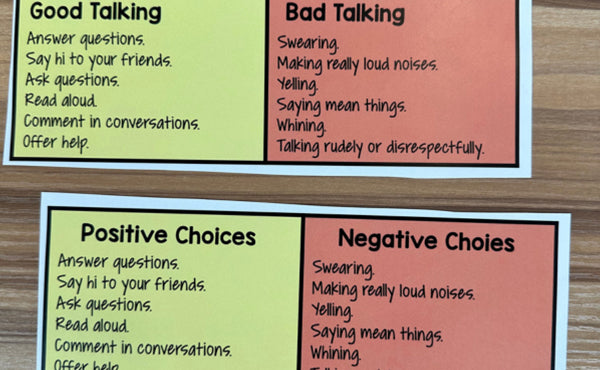Course Summary
The Practical Behavior Approach is a comprehensive online course designed to help you successfully reduce problem behaviors and improve cooperation, independence, and engagement of children of all ages. Learn how to prevent problem behaviors and respond effectively when negative behaviors occur while building essential positive skills. Discover how a child’s diagnosis, history of trauma, and sensory needs impact behavior and the strategies we use.
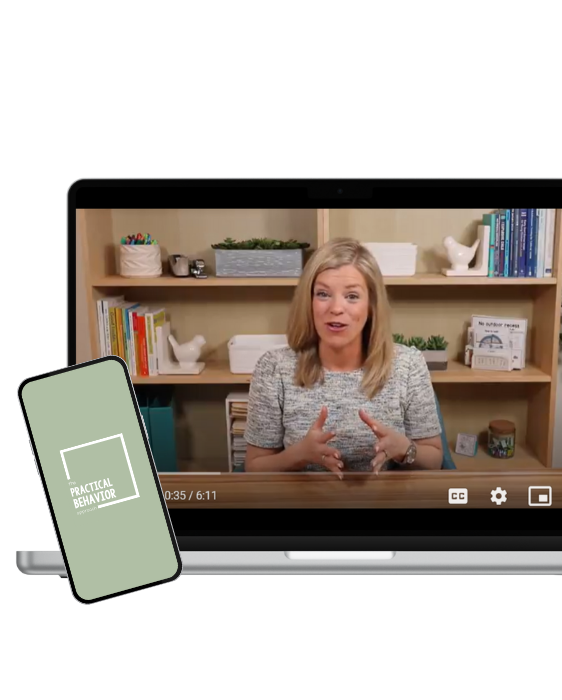
Looking for School Licenses?
Ask your administration to cover the cost of the Practical Behavior Approach Course! We accept purchase orders and can provide a School License for your team. Contact us to learn more about this option & group pricing!
What This Course Includes
 6 modules with a library of 38 video training lessons
6 modules with a library of 38 video training lessons Each topic is broken into short, on-demand videos
Each topic is broken into short, on-demand videos Corresponding downloads and tools to put strategies immediately into action
Corresponding downloads and tools to put strategies immediately into action Ready to use resources differentiated for a range of age and skill levels
Ready to use resources differentiated for a range of age and skill levels 7.5 General or 8.5 BACB continuing education hours upon completion
7.5 General or 8.5 BACB continuing education hours upon completion
Here’s a Peek into the Practical Behavior Approach Course:
Module 1:
Foundations of Behavior
Module 2:
Contributing Factors
Module 3:
Prevent
Module 4:
Respond
Module 5:
Build
Module 6:
Establishing and Running Your Plan

-
 For special education teachers, parents, & clinicians
For special education teachers, parents, & clinicians -
 Teachers how to do a Functional Behavior Assessment & set up a function based Behavior Intervention plan
Teachers how to do a Functional Behavior Assessment & set up a function based Behavior Intervention plan -
 Focuses on behaviors for students with a diagnosis &/or an IEP
Focuses on behaviors for students with a diagnosis &/or an IEP -
 Great for a life skills & self-contained teachers
Great for a life skills & self-contained teachers -
 Includes in-depth training on collecting and analyzing behavior data
Includes in-depth training on collecting and analyzing behavior data -
 Provides instruction on how to use positive reinforcement correctly and effectively
Provides instruction on how to use positive reinforcement correctly and effectively


-
 For all teachers (general ed & special ed), parents, & clinicians supporting any students with challenging behaviors
For all teachers (general ed & special ed), parents, & clinicians supporting any students with challenging behaviors -
 Provides a toolbox of strategies that can be used in a wide range of settings with any individuals
Provides a toolbox of strategies that can be used in a wide range of settings with any individuals -
 Focuses on behavior For students with & without a diagnosis
Focuses on behavior For students with & without a diagnosis -
 Rooted in the science of Applied Behavior Analysis & trauma-informed practices
Rooted in the science of Applied Behavior Analysis & trauma-informed practices -
 Includes detailed training on contributing factors to behavior, including diagnosis, anxiety, trauma, & sensory needs
Includes detailed training on contributing factors to behavior, including diagnosis, anxiety, trauma, & sensory needs -
 Includes training on de-escalation & emotional regulation
Includes training on de-escalation & emotional regulation

Tour the Portal
Testimonials From Past Course Participants
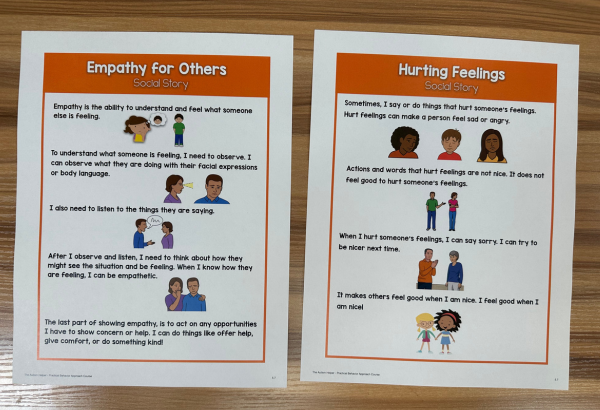
“I love how accessible the platform is. The length of the videos is perfect between working from home and taking care of my son. This makes it easy to listen when I can. ”
– Erica
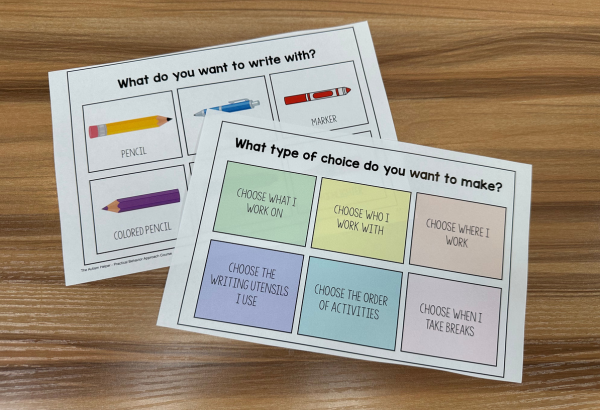
"I love this course. A co-worker and myself love all of The Autism Helper's materials and use them regularly in our Life Skills program. This course and all the materials that go along with it are amazing. I'd have to say that my favorite part of this course is how 'real' Sasha is, and how the information can all be applied and used immediately."
– Amber
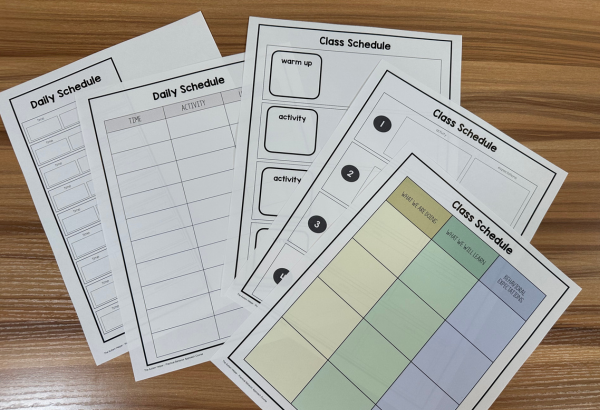
"I loved this course! This is the most informative course I have ever taken and it really gives me more information on understanding behavior. I always have struggled with implementing new behavior tools and this really simplifies it for me and my associates."
– Bailey
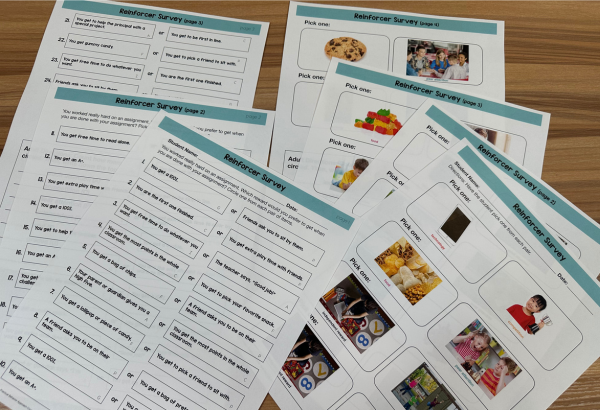
"The downloads and the toolkit are my favorite part of the course. As a former ABA therapist turned special education teacher there was some review, but, there were so many new ideas that I loved! I highly recommended my principal look further into the course to utilize as a training tool for our paraprofessionals in the fall."
– Nara
Practical Behavior FAQs
You have questions, we have answers. Learn more about this course below.
Who is this course for?
This course was designed for special education teachers, general education teachers, clinicians, and parents. Any adult who is supporting a child who is struggling with challenging behaviors and having difficulty meeting expectations at home or school.
What are the course objectives and agenda?
Course Learning Objectives:
Module 1: Foundations of Behavior- Participants will describe why behaviors happen and the role of an educator when working with learners engaging in negative behaviors.
- Participants will define the difference between "can't do" and "won't do" in regards to behavior.
- Participants will practice identifying a problem behavior, connecting it with an environmental expectation, and identifying the relevant lagging skill for a student using the Lagging Skills Assessment.
- Participants will define reinforcement, identify home and school examples of reinforcement, and list multiple ways to assess/identify reinforcers for learners.
- Participants will identify 5 strategies that do not effectively decrease negative behaviors and why these strategies don't work.
- Participants will identify and define the 3 tiers of the Practical Behavior Approach.
- Participants will list the main components of the DSM-5 diagnostic criteria for Autism, ADHD, and ODD, as well as how these diagnoses can impact behavior.
- Participants will define trauma, its impacts on physical and emotional health, and the importance of utilizing a trauma informed approach when selecting behavior strategies and supports.
- Participants will identify multiple ways anxiety and sensory needs can impact behavior.
- Participants will define and describe pairing, rapport, and strategies to connect with students.
- Participants will list and describe several factors (environment, routine, clarifying expectations and making requests, lesson set up, choice, praise, sensory overload) that impact student behavior and name specific strategies related to these factors that can be implemented to help increase positive behaviors and remove triggers for negative behaviors.
- Participants will identify 3 ways they can involve their learners in making choices.
- Participants will define group contingency and describe specific examples of group contingencies.
- Participants will explain why power struggles occur, what results from a power struggle, and how to avoid & respond in the Power Struggle.
- Participants will define what boundaries are, how to establish and hold boundaries, and what to do when boundaries are broken.
- Participants will describe the Starve It and Replace It Framework and how it relates to setting boundaries.
- Participants will list and describe 5 elements needed within a crisis plan and what the adult's role is in a crisis situation.
- Participants will identify strategies for reflecting and repairing with the student, their team, and themselves.
- Participants will describe 3 types of logical consequences and examples of each.
- For several skills areas (emotional regulation, problem solving, resilience, self advocacy, flexibility, perspective taking and empathy, sustained attention), participants will describe what the skill is, why it’s an important skill to build, and actionable strategies to help build that skill.
- Participants will describe what a replacement behavior is, why they are important, and how to teach replacement behaviors.
- Participants will be able to complete a behavior flow chart that includes defining problem and replacement behaviors, ways to prevent and respond to the problem behavior, and how to prompt and respond to the replacement behavior.
- Participants will list and describe 4 steps for creating a simple data system.
- Participants will identify why staff training is important, how to get staff buy in, and how to overcome common obstacles with staff training.
Time-Ordered Agenda
- 0 - 73 minutes, Module 1: Intro + Foundations of Behavior
- 74 - 105 minutes, Module 2: Contributing Factors to Behavior
- 106 - 241 minutes, Module 3: Prevent
- 242 - 318 minutes, Module 4: Respond
- 319 - 419 minutes, Module 5: Build
- 420 - 444 minutes, Module 6: Establishing and Running Your Plan
When will I have access to this course?
You will receive an invite to join The Autism Helper Network within 15 minutes of signing up. Once you’ve set up your account, you will be able to access the course. You will have access to this course for 6 months from the date of purchase. If you have not received either email within 15 minutes, please check your spam folder first. If you cannot locate them there, please contact us at customerservice@theautismhelper.com
W9 Request
What child ages is this course appropriate for?
The concepts taught in this course are appropriate for all children aged 3 - 21. The course teaches how to differentiate the strategies based on the age and skill level of the child.
Can I earn continuing education credits for this course?
All course content must be watched/completed in its entirety including the course feedback form within 6 months from the date of purchase to receive any continuing education credits. The date on the certificate will match the date you complete all course components. No partial credit will be given.
Teachers: 7.5
Teachers can earn 7.5 continuing education credits upon completion of this course. School districts differ in what they will accept as a continuing education credit. It is up to each course participant to confirm that continuing education credits from The Autism Helper, Inc. will be approved by your school district.
BCBAs: 8.5
BCBAs can earn 8.5 continuing education credits upon completion of this course. Sasha Long, BCBA is an Authorized Continuing Education (ACE) provider from the Behavior Analyst Certification Board. This course provides Type 2 continuing education credits.
What is included within the toolkit?
The Practical Behavior Approach Toolkit includes over 120 pages of differentiated materials you can use directly with your students to help prevent negative behaviors, respond when behaviors are happening, and build positive skills.
This includes:
If I have a tech issue, how do I get help?
If you’re experiencing technical issues, please contact us at customerservice@theautismhelper.com
How can I request accommodations?
The Autism Helper, Inc. is committed to providing equal opportunities following all applicable laws. If you need a disability-related accommodation, please contact customerservice@theautismhelper.com. We will review your request and respond promptly. Please note that we will require a minimum of 4 weeks to provide reasonable accommodation for your request.
How do I cancel? Do you offer refunds?
In the event a purchaser is not satisfied with a course, they can request a full refund via email to customerservice@theautismhelper.com. The Autism Helper strives to respond to all refund emails within 24 business hours. The Autism Helper will issue a full refund within 7-14 days from the date of purchase, dependent upon the amount of content consumed by the purchaser. If more than 25% of the course content is consumed, no refund will be issued. Once you have canceled, you will no longer have access to any content of the course.
In the event The Autism Helper is unable to host a course for any reason, all associated costs and fees will be refunded to the purchasers. In the event that The Autism Helper must reschedule the start of a course and the new date is unsatisfactory to the purchaser, a full refund of costs and fees will be issued upon the purchaser’s request to customerservice@theautismhelper.com.
How can I leave you a complaint, feedback, or ask questions?
We’d love to hear your feedback and answer your questions! You can send them to customerservice@theautismhelper.com. We strive to respond to all feedback and question emails within 48 business hours. There is also a mandatory feedback form related to this course at the end of the course.






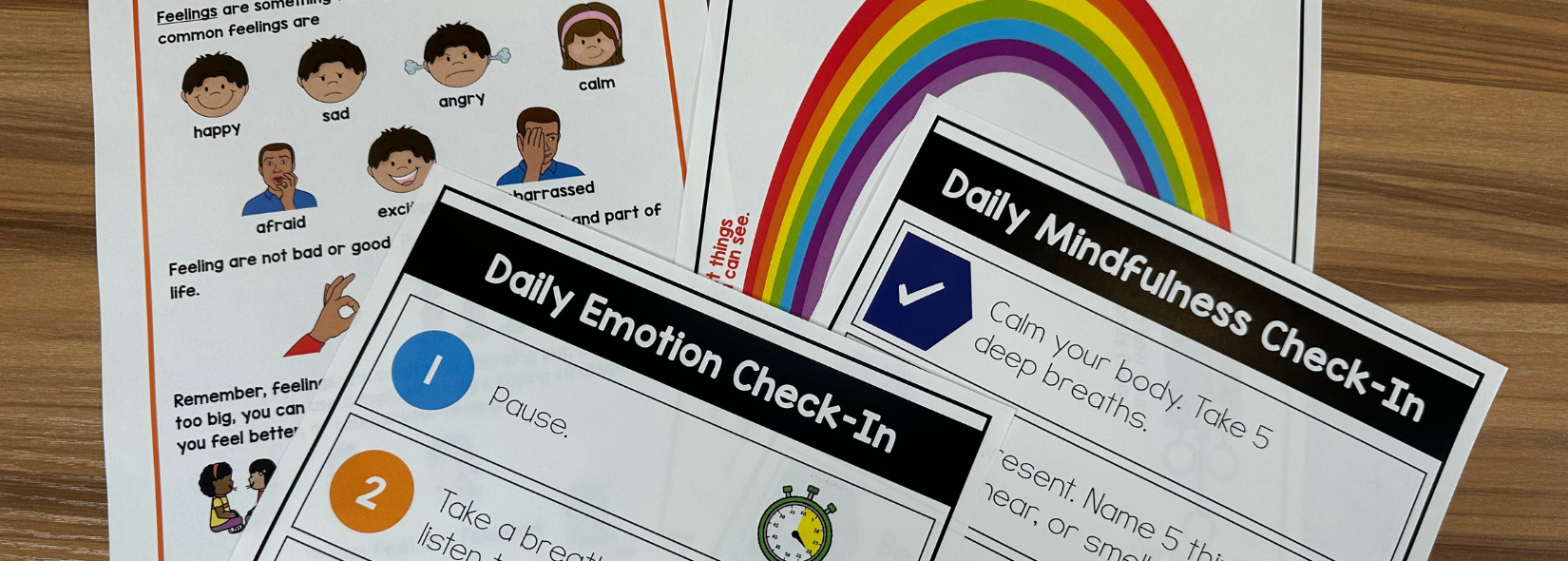
 6 modules with a library of 38 video training lessons
6 modules with a library of 38 video training lessons Lay the foundations for successful behavior change
Lay the foundations for successful behavior change

